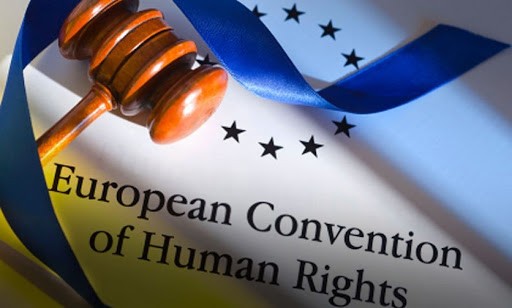The European Union and its member states renewed their commitments to uphold and protect rights in 2023, but they have persistently failed to translate these commitments into practice, Human Rights Watch said today in its World Report 2024.
EU migration policies have contributed to deaths, torture, and abuse. EU states have failed to tackle attacks on and structural discrimination against members of marginalized communities. The EU has failed to act in the face of growing curbs on the rule of law and civil society by member states and has exhibited double standards in its foreign policy.
“There is a troubling gap between the EU’s commitments and its practices on human rights, and people are paying the price,” said Benjamin Ward, deputy Europe and Central Asia director at Human Rights Watch. “If the EU aspires to be a beacon of human rights in a troubled world, it needs to prioritize rights in practice, not just on paper.”
In the 740-page World Report 2024, its 34th edition, Human Rights Watch reviews human rights practices in more than 100 countries. In her introductory essay, Executive Director Tirana Hassan says that 2023 was a consequential year not only for human rights suppression and wartime atrocities but also for selective government outrage and transactional diplomacy that carried profound costs for the rights of those not in on the deal. But she says there were also signs of hope, showing the possibility of a different path, and calls on governments to consistently uphold their human rights obligations.
Amid an increase in people arriving at its borders, the EU and its member states doubled down on repressive deterrence measures and alliances with abusive countries. More than 2,500 people died at sea while trying to reach the EU, highlighting the deadly consequences of the EU’s approach to boat migration.
EU member states, including Bulgaria, Croatia, Poland, Greece, Hungary, Lithuania, and Latvia, engaged in unlawful pushbacks at external borders. Malta and Italy facilitated interceptions at sea by Libyan forces, while EU institutions deepened complicity in abuses, including torture, against migrants and refugees returned to Libya. Italy signed an agreement with Albania to detain people rescued at sea by Italian ships, including asylum seekers, in Albania.
Concerns over declining democratic freedoms and shrinking civil society space persisted in the EU. Hungary and Poland continued to face scrutiny under article 7 of the Treaty on European Union for their governments’ disregard for EU values. However, despite pressure from the European Parliament and civil society, EU member states refrained from taking decisive action against the two. While October elections results in Poland offer prospects for reform, EU engagement remains vital until a new government delivers change, Human Rights Watch said.
EU institutions failed to respond sufficiently to the worrying trend of EU member states beyond Hungary and Poland imposing unjustified restrictions on civil society, including Greece, France, and Italy. Instead, legislative initiatives at the EU level, such as the “Defence of Democracy Package,” raised further concerns over potential stigmatization and chilling effects on civil society at home and abroad.
Following the Hamas-led attack in Israel on October 7 and subsequent hostilities in Gaza, antisemitism and Islamophobia increased in Europe. Yet EU member states’ reactions were inadequate, with some imposing further discriminatory and abusive measures towards people identifying or perceived as Arab, Palestinian, and Muslim, including pushes for stricter immigration policies.
The EU and Council of Europe rights agencies reported increased discrimination against marginalized communities, but EU member states did not act on efforts by European institutions to address these concerns.
EU data from June shows that 95.3 million people – 21.6 percent of the population – were “at risk of poverty or social exclusion” during 2022, making it harder for them to enjoy their rights. The high inflation rates of the previous year fell during 2023 and the impact of the cost-of-living crisis softened, partly as a result of governmental mitigation measures. A European Commission report also highlighted obstacles for marginalized groups to access public services essential to realizing their rights, including for homeless people, Roma, people with disabilities and single-parent – primarily women-led – households.
Growing perceptions of double standards marred EU foreign policy in 2023. To its credit, the EU maintained its support for Ukraine and efforts for accountability for war crimes and other gross violations in Ukraine by Russian forces since Russia’s full-scale invasion of the country. However, the EU’s position on the conflict in Gaza and Israel failed to reflect calls for accountability for crimes committed by all parties.
The EU’s deal with Tunisia, pledging financial support in exchange for migration cooperation despite serious risks to refugees and asylum seekers, exemplified its increasingly transactional diplomacy, leading to silence or support for abusive governments in the vain hope of short-term gains. The EU played a leading role on key resolutions at the United Nations Human Rights Council but failed to insist on the renewal of scrutiny of Libya or to support any follow-up to a damning inquiry on Ethiopia.










